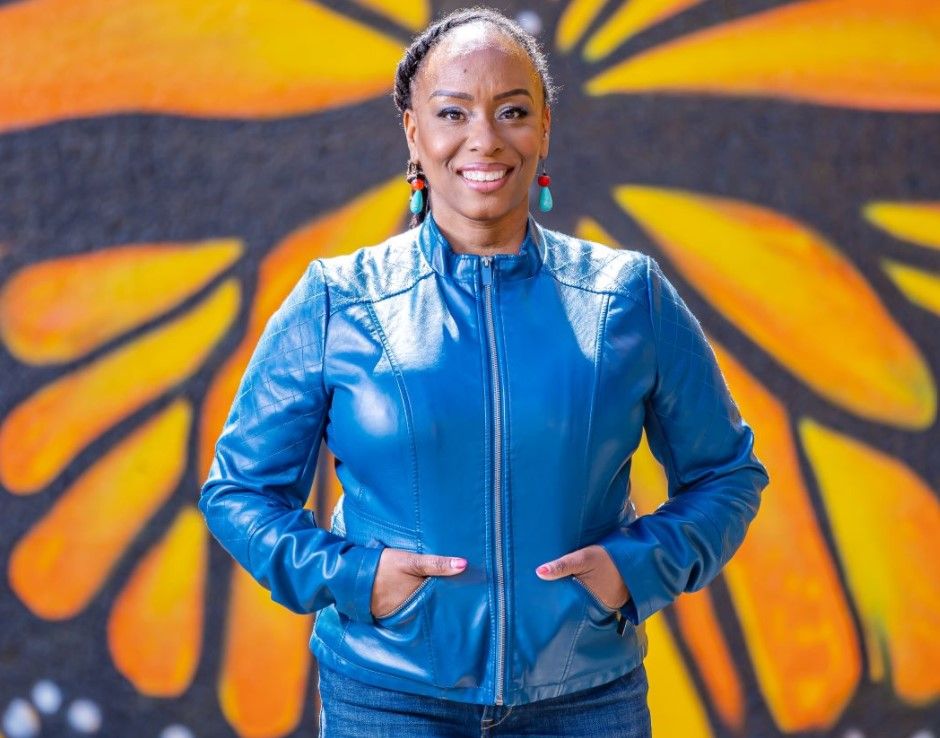Kentucky Legislator Who Introduced Breonna’s Law Runs For Congress
Attica Scott does not play when it comes to the people in her home state of Kentucky. The living embodiment of the phrase “if you want something done, do it yourself,” the second-term Kentucky state representative launched her campaign Wednesday to serve Kentucky’s 3rd Congressional District.
Rep. John A. Yarmuth, who first was elected in 2007, currently represents the 3rd Congressional District In 2019, he was ranked 40 out of the 75 wealthiest members of Congress.
Without naming Yarmuth, Scott released a campaign video highlighting the need for meaningful representation for the thousands living in the 3rd Congressional District. “We need a champion in DC,” Scott told NewsOne. “[One] who will fight for the very issues that are plaguing our communities.”
A little more than two minutes, Scott’s video appears to respond to various calls to action from communities often ignored and left behind. In the first 20 seconds, Scott touches on persisting income inequality in the district, connecting it to the need for empathy in leadership.
“We need a leader who sees this glaring inequality, has the empathy to understand it, and the resolve to address it,” Scott says.
Environmental justice is another issue Scott says is pressing for the district. She wants people in communities like those near the Rubbertown chemical plants and brownfield sites to not only feel heard but to get the resources necessary to thrive.
A June 2020 article from InsideClimate News highlighted the disparity in life expectancy between the different areas in Louisville, a pattern found in similarly situated communities across the country. Like her friend and colleague Charles Booker, who recently announced his candidacy against Sen. Rand Paul, Scott has spent time traveling across her district and the state listening to people’s needs and concerns.
It’s not enough for members of Congress to vote the right way; Scott says representatives should also advocate for value-aligned federal spending. Poor communities, particularly poor communities of color, are often overlooked at all levels of government.
When she transitioned into public office, Scott became a conduit for addressing racial and social justice. Focused on grassroots movement support, Scott does not envision herself as a savior.
Scott shut down the idea that elected officials themselves lead and build movements. “We support movements, and we can be advocates of movements,” she explained. Elected officials themselves, however, are not movements.
Scott sees serving in Congress as the next step in the work she has been doing for close to 20 years. As a coordinator with Kentucky Jobs With Justice, Scott spent nearly a decade working alongside various groups, including labor unions and civic engagement organizations.
She wants to encourage more people to become engaged in the political process, saying that political parties will not save communities disproportionately impacted by injustice.
“We can’t wait for any political party, including Democrats, to save us,” said Scott. “We’ve got us. We understand our issues, our concerns, and we know what our lived experiences are.”
Her work and deep community presence keep her grounded. Scott’s also not phased by the recent pledge by House Democrats to protect incumbents from primary challengers.
Not one to shy away from a challenge, Scott is not worried about the perceived power of incumbency. “For me and for many of the communities I’m in solidarity with, it’s about more than the incumbency,” Scott told NewsOne.
The first Black woman elected to the Kentucky state legislature in 20 years, Scott defeated incumbent Thomas Riner in the 2016 primary for Kentucky House District 41. Riner held the seat since the early 1980s.
Before entering the state legislature, Scott served as a member of the Louisville Metro Council for three and a half years. Her candidacy parallels a trend in recent years with younger Black progressive candidates stepping up to replace incumbents viewed as being out of touch with the districts they represent.
Some may see parallels between Scott’s candidacy and Rep. Cori Bush from Missouri. Both women have been on the frontlines of protests happening in their respective cities, with Scott and her daughter targeted with a false arrest during last summer’s uprisings.
Scott compared energy observed in Ferguson after the murder of Michael Brown and the feeling of solidarity and determination during the 2020 uprising in Louisville.
“We have to have people in every level of government, who will not be silent, who will not only show up for the photo ops but will actually go back to their halls, political decision making and champion legislation to change the realities that we’re facing in our cities.
A few weeks ago, Scott joined a suit against two Louisville Metro Police officers and the former interim police chief. Charges including a felony count of riot in the first degree were dropped last November. Scott was a vocal advocate against police violence, including the killing of Breonna Taylor.
She was the lead sponsor of Breona’s Law, a bill that would ban no-knock warrants across the state and enact accountability measures for officers who fail to comply with policies such as turning on their body cameras.
All of these experiences will follow Scott into Congress next year if she is successful in her campaign. While phrases like grassroots and people-powered campaigns have become popular in the past several years, it’s more than a cool slogan for Scott. Being rooted in the communities, she worked with and represented is at her core.
“The people have made me,” said Scott. “The people have lifted me up and encouraged me. It’s the people’s direction that I follow.”
SEE ALSO:
Partial Ban On No-Knock Warrants Signed Into Kentucky Law After Bipartisan Compromise
[ione_media_gallery id=”4171589″ overlay=”true”]

